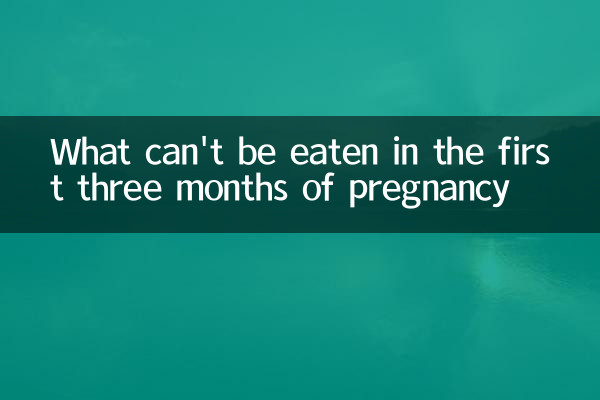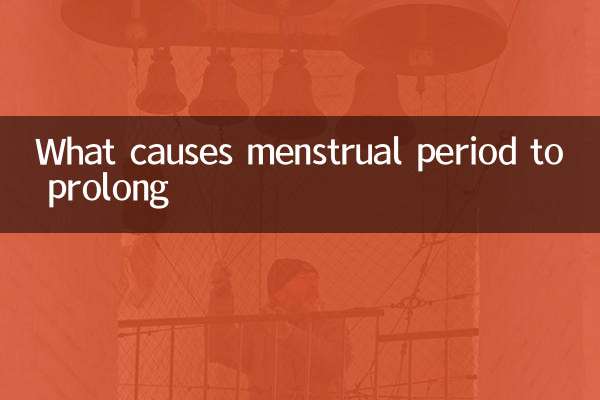What can't be eaten in the first three months of pregnancy
The first three months of pregnancy are a critical period for fetal development, and the dietary safety of pregnant women is particularly important. This article will combine popular topics and hot topics across the network for the past 10 days to organize a detailed dietary taboo list for pregnant mothers to help everyone avoid pitfalls scientifically and ensure the health of mother and child.
1. Foods that must be strictly avoided in the first three months of pregnancy

| Food Categories | Specific food | Hazard description |
|---|---|---|
| Raw and cold food | Sashimi, sashimi, undercooked meat | May contain parasites or bacteria, causing infection |
| High mercury fish | Tuna, swordfish, shark | High mercury content affects fetal nervous system development |
| Unsterilized dairy products | Raw milk, soft cheese | May contain Listeria, causing miscarriage |
| Alcoholic beverages | Beer, red wine, white wine | Increase the risk of fetal malformations |
| High caffeine drinks | Coffee, strong tea, energy drinks | Excessive intake may increase the risk of miscarriage |
2. Foods that need to be restricted intake
| Food Categories | Recommended intake | Things to note |
|---|---|---|
| Pickled food | No more than once a week | High salt may cause edema |
| Fried food | No more than 2 times a week | Increase digestive burden |
| Desserts | No more than 30g per day | Prevent gestational diabetes |
| Animal liver | No more than 100g per month | Excess vitamin A may cause teratogenic |
3. The dietary issues during pregnancy that have been discussed recently
1.Is plant-based sugar substitute safe?: Recently, the impact of sugar substitution on pregnant women has been hotly discussed on the Internet. Experts suggest that although some sugar substitutes are considered safe, the dosage should still be controlled and natural sweeteners should be preferred.
2.Potential risks of internet celebrity milk tea: Recently, many nutritionists have reminded that commercially available milk tea often contains excessive caffeine and sugar, and should be avoided as much as possible during pregnancy.
3.Takeaway food safety: With the popularity of takeaway, experts have specifically reminded pregnant women to pay attention to the hygiene of takeaway food and avoid eating cooked food of unknown origin.
4. Dietary advice during pregnancy
1.Ingredient selection:Prefer fresh and seasonal ingredients to ensure reliable sources.
2.How to cook: Try to use healthy cooking methods such as steaming, boiling, and stewing to avoid frying and barbecuing.
3.Balanced nutrition: Ensure the intake of important nutrients such as protein, folic acid, iron, and calcium.
4.Dietary rules: Eat less and eat more and avoid overeating.
5. Special reminder
Pregnant women have different physical constitutions and their responses to food are also different. If you experience discomfort after eating a certain food, you should stop eating immediately and consult a doctor. At the same time, it is recommended that every pregnant woman undergo regular prenatal check-ups and adjust her diet plan according to her personal circumstances.
Pregnancy is a special stage in life. Reasonable dietary arrangements not only affect the health of pregnant women, but also directly affect the development of the fetus. Hopefully this guide will help expectant mothers through a safe and healthy early pregnancy.

check the details

check the details